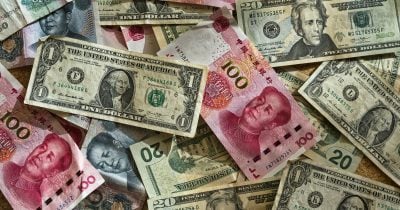Home » Regulation » Beijing court sentences five for $166M disguised foreign exchange transactions
Powered by Gloria | Edited by
China intensifies enforcement against illegal cross-border transfers, underscoring closer scrutiny of digital asset use in foreign exchange activities.

Photo: Eric Prouzet
Key Takeaways
- A Beijing court has sentenced five individuals for conducting $166 million in disguised foreign exchange transactions using stablecoins.
- The scheme involved the use of USDT to bypass China’s strict foreign exchange controls and move funds across borders.
Share this article
A Beijing court sentenced five individuals for conducting $166 million in disguised foreign exchange transactions, highlighting China’s ongoing crackdown on unauthorized currency transfers using digital assets.
The defendants used USDT, a stablecoin commonly employed to bypass traditional foreign exchange restrictions, to facilitate cross-border transfers that circumvented China’s strict controls on RMB conversions and international money flows.
China’s procuratorate recently disclosed details of cases involving virtual currencies for unauthorized offshore exchanges, emphasizing continued enforcement against disguised financial activities that violate the country’s foreign exchange regulations.
Recent court rulings in China have consistently reinforced prohibitions on using stablecoins like USDT for payments or currency-like functions, as authorities maintain tight oversight of both traditional and digital asset-based cross-border transactions.


